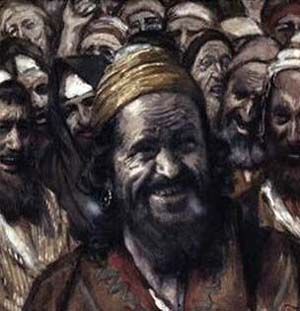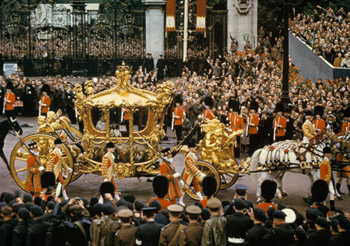Monday, February 11, 2019
Wednesday, January 30, 2019
Saturday, January 19, 2019
Monday, January 14, 2019
Thursday, January 3, 2019
Wednesday, January 2, 2019
Famiglie di distinta civiltà
Famiglie di distinta civiltà
- Categoria:
ELENCO DELLE FAMIGLIE DI DISTINTA CIVILTA' ITALIANE
-----------------------------------------------------------
Durante il Regno d'Italia, secondo l'art. 30 del Regio Decreto 7 giugno 1943, n. 651, erano ammessi il riconoscimento di stemmi di cittadinanza a famiglie non nobili, ma di distinta civiltà, che potevano provare con documenti autentici o riproduzioni di monumenti di goderne da un secolo il legittimo possesso.
In araldica questa consuetudine è stata mantenuta fino ad oggi, quindi sul Registro Araldico Italiano coloro che hanno registrato lo stemma storico e che possono fregiarsi della distinta civiltà saranno elencati in questo spazio.
L'allegato sarà quindi inserito al momento della stampa della pubblicazione alla fine del registro nell'Elenco delle Famiglie di Distinta Civiltà.
Per poter essere inclusi in questo elenco bisogna procedere ad una disamina della situazione della propria famiglia : lo Studio Araldico Pasquini offre la possibilità di effettuare questa disamina e quindi dopo la valutazione dei documenti e delle prove che sottoporrete (in caso di riscontro positivo) sarà possibile definire la vostra posizione ed acquisire la qualifica di famiglia di distinta civiltà.
La qualifica sarà accompagnata da un fascicolo contenente la prove presentate, una relazione sulla disamina del caso e se richiesta una perizia giurata dello studio, che è iscritto come perito in Scritture antiche ed araldiche alla Camera di Commercio di Chieti.
Se in possesso di distinta civiltà la famiglia potrà essere iscritta in questa sezione e nella Parte V dell'Annuario della Nobiltà Italiana.
Per essere annoverati nella distinta civiltà bisogna che lo stemma abbia i seguenti requisiti:
i) Che esista da almeno 100 anni;
ii) Che sia pubblicato su pubblicazioni o raffigurato su cappelle, monumenti, edifici o oggetti di famiglia di epoca anteriore i 100 anni;
iii) Distinzione della famiglia (linea diretta patronimica) per almeno tre generazioni o presupposto di vita more nobilium (la famiglia per almeno tre generazioni, a partire dal richiedente, non deve aver svolto arti meccaniche o professioni infamanti e possibilmente deve aver svolto professioni intellettuali, o aver goduto dello status di proprietari terrieri o aver ricoperto delle cariche pubbliche).
Costo iscrizione: Euro 50 più Iva
Tuesday, January 1, 2019
Nobiltà Generica
La Nobiltà Generica nel Regno di Napoli
Uno degli argomenti meno chiari ai più che si interessano della nobiltà in epoca borbonica è dunque il concetto di nobiltà generica, ovvero la nobiltà cosiddetta "semplice" (non scaturita da titolo feudale o formale riconoscimento regio), e soprattutto come e quando si acquisiva nobiltà. In sostanza in che modo e quando una famiglia potesse definirsi nobile anche se non era di nobiltà generosa, cioè quando non aveva avuto e posseduto feudi, non aveva avuto concessioni nobiliari dal sovrano oppure non discendeva da personaggi che avevano rivestito alte dignità producenti nobiltà, ovvero la cosiddetta "nobiltà del terzo grado". Il Reale Dispaccio del 25 gennaio 1756 infatti regolò la Nobiltà in tre gradi e distinse la Nobiltà generosa, la Nobiltà di privilegio e la Nobiltà legale (o civile).
A cura di Giovanni Grimaldi
Friday, December 28, 2018
Wednesday, December 26, 2018
Egalitarianism and Vulgarity by Plinio Corrêa de Oliveira
| I was asked to develop the topic of how one can become more anti-egalitarian, in order to be more counter-revolutionary. For this purpose, I believe that the most important thing is to have a clear idea not only of egalitarianism considered as an abstract evil, a philosophy, but also as concrete and practical evil, a moral evil. Thus, one must understand the evil of egalitarianism and have a fitting repulsion of it. What is the moral evil of egalitarianism? What is the proper attitude one should take before this moral evil?
When this vulgar person sees, for example, a youth in a jacket, buttoned shirt and tie passing, he says to him, "This irritates me! I don't mind the shirt, but the tie has to go. Why not wear the shirt without the tie?" If the youth takes off the tie, that person will still look angrily at him and say, "Why don't you take off your jacket?" If the youth removes his jacket, he says, "Why don't you wear your shirt outside your pants instead of tucking it in?" And if, finally, the youth complies and pulls out his shirt, he says, "Why aren't you wearing blue jeans?" I am not speaking here about an egalitarian person who is envious of someone else who has more than he does. This is not the case; the problem of money is not a question here. Rather, the egalitarian man is a person with a mentality that feels connatural with things insofar as they are vulgar, and he feels revulsion for things to the degree that they are elevated. And the more elevated something is, the greater the revulsion he has for it. He feels incongruity with what is elevated because he likes vulgarity. His actions are motivated not from envy, but from vulgarity, because what is elevated and distinguished irritates him. On the contrary, what is vulgar arouses sympathy in him. Egalitarian attitudes A person like this, even if he were rich, would not want to buy refined objects. He drives a dirty and slapdash car because he likes it; for him that car is a symbol of the world, life and the universal order; it is what he likes.
When a person like this looks at the past and considers some of the forms of courtesy born from Christian Civilization, such as, "Truly, Sir, I am pleased to be at your service" or "If Your Ladyship would permit me," he reacts by saying, "What foolishness! What rubbish!" "There's no purpose to all that." If he were to see a carriage pulled by two pair of magnificently harnessed horses, adorned with paintings over gold and dark red upholstery, with artistically elaborated wheels - like the carriage for gala events of the Queen of Norway - and with windows of crystal and plumes on the top, postilions, etc, his first thought would be to look for a stone to throw at the carriage while he boos at it and shouts some insult. He would think this a very coherent action since he believes that such a carriage must be destroyed. This is the mentality of so many tourists who visit the statues of Aleijadinho: They break the fingers, write their names on the stone and do countless damage to those works of art because they want to destroy everything that is elevated. The evilness of such attitudes This mentality is worthy of repulsion, because it professes a love of evil for evil's sake. It is actually to love evil for the evil, the dirty for the dirty, the warped for the warped, the ugly for the ugly and the error for the error.
One can imagine the horrendous face, frenzied gaze and dirty hair of Barabbas. Then, alongside this monster stands Our Lord Jesus Christ, majestic, most dignified and sublime, even in that moment of misfortune. The crowd looks at the two, and calls out, "We want the monster." It is a depraved act, showing squalor of soul. It is like seeing the Demon and God, and preferring the Demon. Now, it is this squalor of soul that constitutes egalitarianism. For this reason, we have to understand – without entering into more elevated theological considerations – that egalitarianism should be the object of the most implacable rejection of the counter-revolutionary soul. Anti-egalitarianism attitudes The disposition of soul of an anti-egalitarian person is that of one who seeks the more sublime in all things, not in order to have them, but in order to know them and to admire them.
On the contrary, an egalitarian man would say, "It's overdone. Why doesn't it have ordinary windows? Why should that pretentious woman have ordered those crystal windows?" This is an egalitarian response. To always desire to see, understand and love what is more sublime and elevated and, therefore, to have a type of severance of soul with what is less sublime and elevated – this is the keynote proper to a spirit that is not egalitarian. A distinction between poverty and vulgarity It should be noted, however, that while the anti-egalitarian and hierarchical spirit always seeks the more elevated things, it does not despise or hate what is simple. If a person without an egalitarian spirit is poor and lives with composure in his poverty, he deserves respect. What the counter-revolutionary rejects is the vulgar. The house of the Holy Family in Nazareth was poor, but it was not vulgar. Everything in it was well arranged - everything in order, clean, and elevated, even in its poverty. The anti-egalitarian person does not despise this; he considers poverty good when it has decorum and is in order. What he hates and despises are things that are wrong, disordered for the love of disorder, dirtiness, and vulgarity – which is a very different thing. Characteristics of the anti-egalitarian spirit Here would be, then, a first point for reflection: We must try to cultivate continuously in ourselves a state of soul that seeks the elevated, that loves the sublime. In its turn, this leads our spirit to heights of love of God. This is the first note of the anti-egalitarian spirit.
Many are accustomed to highly regard the social class or worldly circle in which they were born as if it were the model of society and the pattern of good living. For this reason, they consider that to have anything more than what that circle has is an unnecessary luxury, foolishness: "If I am accustomed to something and X likes something else that is more refined, then he is extravagant, an idiot, because the habits I acquired when I was a boy are the proper pattern of human life." It is interesting to note that this is found not only in the higher classes but in every gamut of society. There are bourgeois, very rich ladies who, hearing about more refined dishes, will say, "I did not develop a task for this dish when I was growing up. Why should I taste them now or make them for my family?" This is a bad excuse to avoid becoming more refined in taste and elevated in customs. Despite the money they have, they think that what they were raised with is good enough and nothing more is needed. Thus they close themselves to the good influence of civilization without even examining it. However, all of us have an obligation to increasingly love God and whatever reflects Him in creation or in civilization. Therefore, we should be open to those refinements of Catholic culture and civilization that we did not receive when we were growing up, and be willing to admire them. We all have a tendency to dislike a pattern of life that is superior to our own; it is a propensity that comes from self-love: "If something suffices for me and I have a perfectly fine life, then why does that person have to want more? Does he think that he is more than I am?" This is what generally is passing through our minds, if not something worse. From this state of soul, a radical scorn for what is more elevated and refined infallibly comes, always accompanied by the taste for what is lesser and more vulgar. Quantity is preferred to quality, practicality to dignity, spontaneity to discipline, sloppiness to ceremony, dirtiness to cleanness. In an ambience where this state of spirit reins, someone who does something called for by the most elementary civility - for instance, he steps ahead and opens the door for his superior – he is either criticized as a fool or someone sarcastically says, "That's because he had a very refined upbringing." This is to justify the lack of good manners that dominates the general atmosphere. This false concept of a "refined upbringing" as something superfluous and excessive is born in its turn from the already mentioned egalitarian concept: "What suffices for me should suffice just as well for everyone else!" It is necessary, therefore, to understand that often there are demands of perfection and heights of good taste that, even if we do not understand them, do not characterize a foolish man, but rather the shrewd man who perceived what escaped me. In this point we must take an attitude of humility in the face of something that we are not capable of perceiving and comprehending. I believe that we still have some progress to make in these two directions. I offer these considerations to you so that we can progress in the love of inequality and in the combat against egalitarian. |
-
The Conflict Between British and Continental Concepts of Nobility and the Order of Malta https://archive.li/z7xhZ The Confli...
-
MAINTENANCE OF THE NOBILIARY TRADITIONS OF THE ORDER OF MALTA © Guy Stair Sainty The greatest problem confronting the Order in the maintenan...





